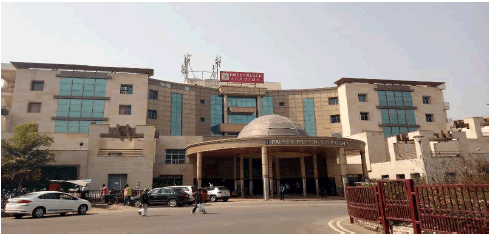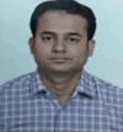Indexed In
- RefSeek
- Hamdard University
- EBSCO A-Z
- OCLC- WorldCat
- SWB online catalog
- Publons
- International committee of medical journals editors (ICMJE)
- Geneva Foundation for Medical Education and Research
Useful Links
Share This Page
Open Access Journals
- Agri and Aquaculture
- Biochemistry
- Bioinformatics & Systems Biology
- Business & Management
- Chemistry
- Clinical Sciences
- Engineering
- Food & Nutrition
- General Science
- Genetics & Molecular Biology
- Immunology & Microbiology
- Medical Sciences
- Neuroscience & Psychology
- Nursing & Health Care
- Pharmaceutical Sciences
Value Added Abstract - (2020) Volume 0, Issue 0
Role of Home Based Targeted-CASP Therapy in Post Stroke Rehabilitation
Anirudh Rao Deshmukh*, Robin Bansal and Sunil PradhanPublished: 16-Sep-2020
Abstract
Introduction: There is a need for a low cost, easy to apply, non-institutional regimen for significant functional recovery in post- stroke patients.
Aim: To study the effectiveness of modified version of Corrected Assisted Synchronized Periodic therapy termed here as Targeted-CASP (T-CASP) therapy (Fig 1) in improving motor, cognitive, behavioural and functional disability in post stroke patients.
Methods: This is a prospective quasi-randomised double blinded control study. The study was conducted in super-specialty tertiary care centre. Follow up patients of stroke were recruited from outpatient department of neurology. Patients recruited on OPD-1 (Monday) and OPD-2 (Friday) was grouped under cases and controls respectively. All patients were assessed for power, spasticity, cognition and depression, functional level at baseline (0), 3 months and 6 months using standard tools of assessment. Relatives/Caregivers were trained in T-CASP therapy and asked to carry it out at their homes as per protocol.
Results: Baseline patient characteristics and outcome parameters were comparable between two groups. Significant difference was seen at 3 and 6 months between the two groups in Ashworth scale score for spasticity (p value- .012 & .001), MRC score for power (p- .021 and .001), Adden-Brookes score for cognition (p-.025 & .010), BDI score for depression (p-.001&.001). Barthel scores were higher in T-CASP group but the difference was not significant (p- 0.219 & 0.080). However, on subcomponent analysis percentage of people who were able to walk (93.3 vs 76.7 %), transfer to/from bed/chair (80 % vs 70%) and climb stairs (63.3% vs 50%) independently at 6 months was significantly higher in T-CASP group.
Conclusion: Targeted-CASP therapy is a low cost, home based post stroke physiotherapy regimen which benefits all the aspects of post stroke rehabilitation including motor, cognitive, behavioural and functional disability.

Biography:
Anirudh Rao Deshmukh is a final year resident in Neurology in Sanjay Gandhi Postgraduate Institute of Medical Sciences, Lucknow, India. He did his MD in Internal Medicine and his MD thesis was on role of ACE gene polymorphism in chronic kidney disease. He is working in the field of management of post stroke spasticity, Parkinsonism and Hirayama disease. He has also worked on, Headaches in patient with Neurocysticercosis, Frontal Lobe dysfunction in Progressive Supranuclear Palsy and Subacute sclerosing panencephalitis.

Speaker Publications:
1. Pradhan S, Bansal R. “Role of corrected-assisted-periodic therapy in post stroke rehabilitation”. Neurol India 2019; 66:1345-50.
2. Carlo Trompetto, Lucio Marinelli, Laura Mori, et al., “Pathophysiology of Spasticity: Implications for Neurorehabilitation,” BioMed Research International, vol. 2014.
3. N.J. O’Dwyer and L. Ada, “Reflex hyperexcitability and muscle contracture in relation to spastic hypertonia,” Current Opinion in Neurology, vol. 9, no. 6, pp. 451–455, 1996.
4. J.-M.Gracies, “Pathophysiology of spastic paresis. I: paresis and soft tissue changes,” Muscle and Nerve, vol. 31,no. 5, pp. 535–551, 2005.
5. C. Trompetto, L. Marinelli, L. Mori et al., “Post-activation depression changes after robotic-assisted gait training in hemiplegic stroke patients,” Gait and Posture, vol. 38, no. 4, pp. 729–733, 2013.
34th European Neurology Congress; Webinar-June 24-25, 2020.
Abstract Citation:
Anirudh Rao Deshmukh, Role of home based targeted-CASP therapy in Post stroke rehabilitation, Neurology Congress 2020, 34th European Neurology Congress Webinar- June 24-25, 2020.

